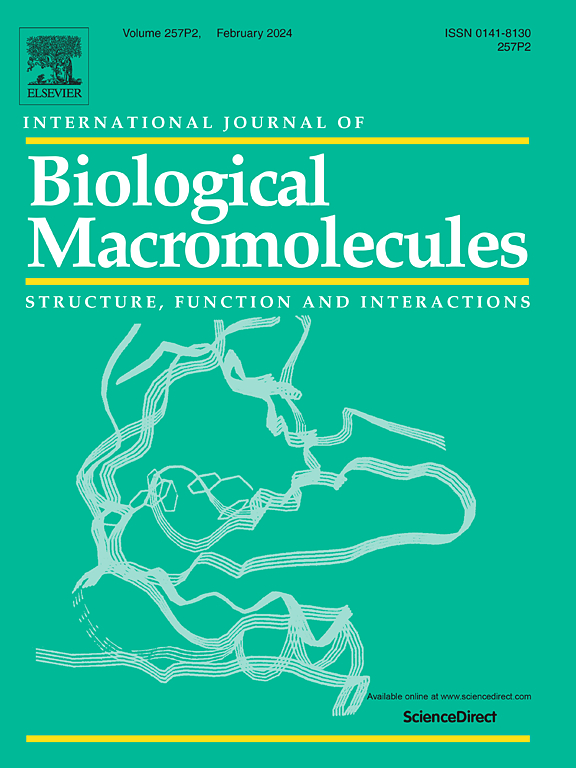KLF12 transcriptional activation by a novel LncRNA A930015D03Rik enhances melanoma metastasis
IF 7.7
1区 化学
Q1 BIOCHEMISTRY & MOLECULAR BIOLOGY
International Journal of Biological Macromolecules
Pub Date : 2025-04-02
DOI:10.1016/j.ijbiomac.2025.142686
引用次数: 0
Abstract
Melanoma metastasis remains a poorly understood yet fatal hallmark of cancer progression, with limited therapeutic strategies targeting its underlying mechanisms. While the transcription factor KLF12 shows paradoxical roles across malignancies, its context-dependent functions in melanoma—particularly its regulatory interplay with extracellular vesicle (EV)-driven intercellular communication—have not been systematically explored. To address this gap, we investigated how metastatic melanoma cells exploit KLF12-mediated pathways through EV cargo transfer to propagate aggressive phenotypes. Our research results indicate that highly metastatic cells transfer lncRNA A930015D03Rik through exosomes, acting as a sponge for miR-204-5p, which promotes the expression of KLF12. The transcriptional activation of KLF12 facilitates the activation of critical pro-cancer pathways such as inflammation and NF-κB, while inhibiting the tumor-suppressive mechanisms of P53 and oxidative phosphorylation. This ultimately enhances the migration and invasion capabilities of low-metastatic tumor cells, driving the malignant progression of melanoma. In this study, we identified a novel tumor-derived EVs lncRNA, A930015D03Rik, which can enhance the expression of KLF12 through a ceRNA mechanism and influence the post-translational regulation of KLF12, thereby modulating the plasticity of tumor metastasis. This exosome-genome feedforward circuit explains KLF12's microenvironment-contingent pro-metastatic function, offering significant insights for the development of future therapeutic strategies targeting tumor metastasis.

求助全文
约1分钟内获得全文
求助全文
来源期刊
CiteScore
13.70
自引率
9.80%
发文量
2728
审稿时长
64 days
期刊介绍:
The International Journal of Biological Macromolecules is a well-established international journal dedicated to research on the chemical and biological aspects of natural macromolecules. Focusing on proteins, macromolecular carbohydrates, glycoproteins, proteoglycans, lignins, biological poly-acids, and nucleic acids, the journal presents the latest findings in molecular structure, properties, biological activities, interactions, modifications, and functional properties. Papers must offer new and novel insights, encompassing related model systems, structural conformational studies, theoretical developments, and analytical techniques. Each paper is required to primarily focus on at least one named biological macromolecule, reflected in the title, abstract, and text.

 求助内容:
求助内容: 应助结果提醒方式:
应助结果提醒方式:


